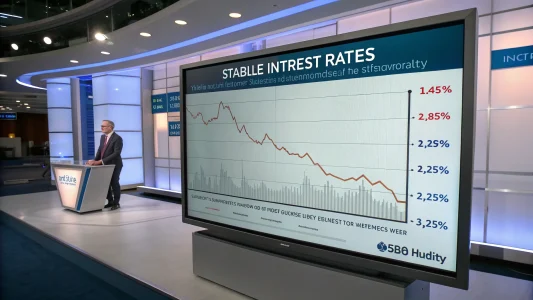The Consumer Financial Protection Bureau (CFPB) is changing course under new leadership, rolling back policies that were designed to protect Americans from financial hardships. These reversals affect areas including medical debt and overdraft fees—policies that consumer advocates had hoped would remain in place due to their widespread public support.
The policy shifts represent a significant change in the bureau’s approach to consumer protection, potentially affecting millions of Americans who struggle with various forms of debt and banking fees.
Medical Debt Protections Under Threat
Among the policies being reconsidered are protections related to medical debt, which affects approximately 100 million Americans. Previous CFPB leadership had implemented rules that limited how medical debt could appear on credit reports, recognizing that such debt often results from unexpected health emergencies rather than poor financial management.
The bureau had previously determined that medical debt was not as predictive of overall creditworthiness as other forms of debt. This finding led to policies that prevented certain medical debts from damaging consumers’ credit scores.
These protections were critical for people facing financial ruin through no fault of their own,” said a consumer advocate familiar with the bureau’s work. “Medical emergencies can happen to anyone, regardless of how responsible they are with their finances.”
Overdraft Fee Regulations Loosened
Another area seeing policy reversals involves overdraft fees, which have long been criticized as predatory banking practices that disproportionately affect lower-income Americans. The previous CFPB leadership had moved to limit these fees, which can reach $35 or more for transactions that overdraw an account by just a few dollars.
Banks collect billions annually from overdraft fees. The bureau had previously pushed for more transparency in how these fees are disclosed and applied, and had considered caps on the amounts that could be charged.
The new leadership appears to be backing away from these restrictions, potentially allowing financial institutions to continue charging substantial fees for overdrafts.
Public Response and Industry Reaction
Consumer advocacy groups have expressed alarm at the policy reversals, noting that these protections had broad public support across political lines. Financial industry representatives, however, have welcomed the changes, arguing that previous regulations were overly burdensome.
Banking industry groups maintain that overdraft fees represent a service that consumers choose to use, and that medical debt reporting helps maintain the integrity of the credit system.
The policy shifts come amid broader changes at the CFPB, which was created in the aftermath of the 2008 financial crisis to protect consumers from abusive financial practices. The bureau’s mission and authority have been subjects of political debate since its inception.
“The CFPB was established to be a watchdog for everyday Americans. These reversals raise questions about whose interests are being prioritized,” noted a former bureau official who requested anonymity.
The timing of these changes has raised eyebrows among observers, as they come when many Americans continue to face financial pressures from inflation and economic uncertainty. Medical debt in particular remains a leading cause of personal bankruptcy in the United States.
As the CFPB continues to reshape its regulatory approach, consumers may need to exercise greater caution in their financial dealings. Without the protections previously in place, individuals could face greater consequences for medical emergencies or banking missteps.
The bureau has not yet announced comprehensive replacements for the policies being reversed, leaving questions about what, if any, alternative consumer protections might be implemented in their place.
















